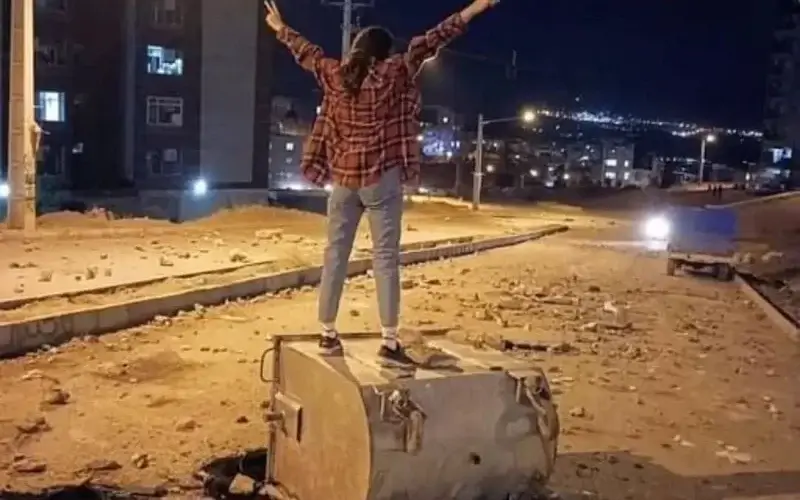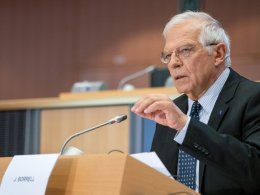With protests in Iran entering their fourth week throughout the country over the death of 22-year-old Mahsa Amini, tensions rose in the Iranian city of Sanandaj after reports indicated that the regime had launched an attack, killing protesters who were peacefully demonstrating.
According to multiple media reports, several activists in Sanandaj faced suppression tactics by security forces, including arrests, brutal beatings, internet disruptions, and the use of live ammunition against individuals marching on the streets and chanting the downfall of the Islamic regime. Even with the violent suppressions, the protesters persisted in their acts of civil disobedience, engaging in commercial strikes, and chanting anti-regime slogans.
The latest development in the Kurdish area comes as Iranian Supreme Leader Ali Khamenei and President Ebrahim Raisi have directed security forces and the Islamic Revolutionary Guards Corps (IRGC) to crack down against protesters without any leniency.
Reports from human rights groups like the Norway-based Hengaw with connections to individuals in Sanandaj reveal that forces and IRGC troops have used firearms and tear gas "indiscriminately" against citizens, killing protesters of all ages who dared to chant pro-freedom slogans.
Despite the Islamic Republic's disruption of Internet services, protesters have taken photographs and videos of the situation in the city, posting them on social media outlets like Twitter, Facebook, and Instagram.
According to reports from Hengaw, Iranian warplanes have arrived at the city's airport overnight, with regime forces heading on their way to the city to crackdown on protesters.
On Twitter, a video from Hengaw shows the sounds of Islamic forces shelling citizens throughout the night. Many of these forces were Revolutionary Guards troops who fired automatic weapons into the early hours.
The 22-year-old who died at the hands of the Islamic morality police, Mahsa Amini, was from the Kurdistan province, of which Sanandaj is the capital, inspiring many residents to plan demonstrations before and after the Amini’s funeral.
Many men and women activists formed gatherings and asked shopkeepers to respect the call for commercial strikes along the city's main streets and allow workers to join in on the marches. In response to protests, the Islamic security forces targeted the organizers, enacting Internet blackouts to make it difficult for protesters to communicate with one another.
At first, security forces fired pellet guns and tear gas at the crowd, causing many to disperse. With protests still unrelenting, the security forces and IRGC troops resorted to using live ammunition against protesters killing several and injuring dozens more.
According to reports, the city has become a ‘war zone,’ with individuals in the Kurdistan region unable to reach relatives or find safety away from attacks by regime troops.
The crackdown against citizens in Sanandaj by the Islamic Republic is not new. The area was attacked several times since the 1979 Islamic Revolution.
After the establishment of the new Islamic government, Kurdish groups sought to receive recognition from the new regime and called for political autonomy. However, as events unfolded in Iran, the relationship between the Kurds and the mullahs resulted in armed conflict.
At first, Kurdish militants made some territorial gains in the province of Mahabad, ousting Iranian troops from the area, which led the Islamic Republic to dispatch its newly created Revolutionary Guards Corps to change the course of the conflict.
When the Iran-Iraq War occurred in September 1980, the Ayatollahs made every effort to crush the Kurds, pushing them out of their strongholds. In the end, around 10,000 people were killed in the Kurdish Rebellion, with several thousand Kurds becoming political prisoners and executed swiftly by the Islamic regime through firing squads, torture, and hangings.
While there have been very few sporadic attacks from Kurdish groups in Iran since the 1980s to early 1990s, the Islamic regime continues to target the Kurds in Iran, accusing them of trying to overthrow the Islamic Republic and being supported by outside countries like Israel and America.










